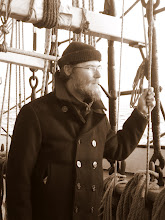A recent acquisition.
(Literally two days ago)
And a real treasure!
This book, entitled simply "Airship Design" by Charles P. Burgess, originally published in 1927, was intended to be a TEXTBOOK on the design of rigid airships. This 300 page book is absolutely stuffed with engineering formulas, diagrams, tables, and in depth discussions of the design of rigid airships. There is information here that can be found nowhere else outside of original German documents from the time.
Burgess was an Aeronautical engineer with the Bureau of Aeronautics, United States Navy. He was also Associate Professor of Aeronautical Engineering at MIT. He attempted to collect in one place all the critical analysis necessary for the design of these aerial leviathans. At the time the large rigid airship was considered to be one of the great modern inventions. The future of which was still very bright!
The US Navy had acquired the Los Angeles,ex LZ126, from Germany as war reparations in 1924, and was in the process of designing its own large rigid airships the Macon and Akron. The destruction of the Shenandoah in a storm in 1925 had only increased the interest in the design problems and this book was an exercise in making the current knowledge available for designers, inventors and students working in the field of rigid airship design.
My copy is a 2004 reprint by the University Press of the Pacific in Hawaii, and is available here at Amazon. Reading through this book is fascinating, every page has some bit of information that just thrills the engineer in me.
For example, from a randomly chosen page (104) under the heading Dynamic Lift:
Moderate inequalities of the static forces of weight and buoyancy may be compensated by aerodynamic forces imposed upon the hull and horizontal tail surfaces through controlled operation of the elevators. This dynamic lift varies as the square of the speed, and increases with the angle of attack up to large angles, provided the speed is constant; but the increase in drag with the angle of attack reduces the speed so rapidly that at any given horsepower, the maximum dynamic lift is obtained at about 8 degree pitch. Figure 30 shows curves of the speed and dynamic lift of the U.S.S. Los Angeles.This book also contains diagrams and photos of the structural components of these ships, as well as the analysis and design calculations necessary to insure their structural stability.
A fabulous source of engineering information from a time when Airships truly were the masters of the sky.
Title
Airship Design
Author
Charles P. Burgess
Aeronautical engineer with the Bureau of Aeronautics, United States Navy. He was also Associate Professor of Aeronautical Engineering at MIT.
Publisher
University Press f the Pacific
Honalulu, Hawaii, USA
Date
Originally 1927
Reprinted 2004
ISBN
1-4102-1173-8
Keep your sightglass full, your firebox trimmed and your water iced.
KJ



~ 0 comments: ~
~ Post a Comment ~